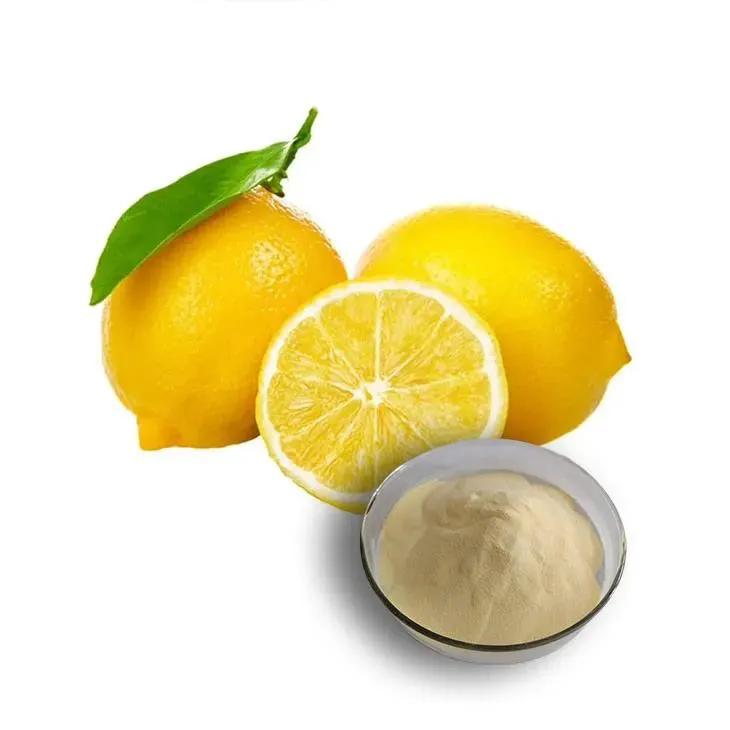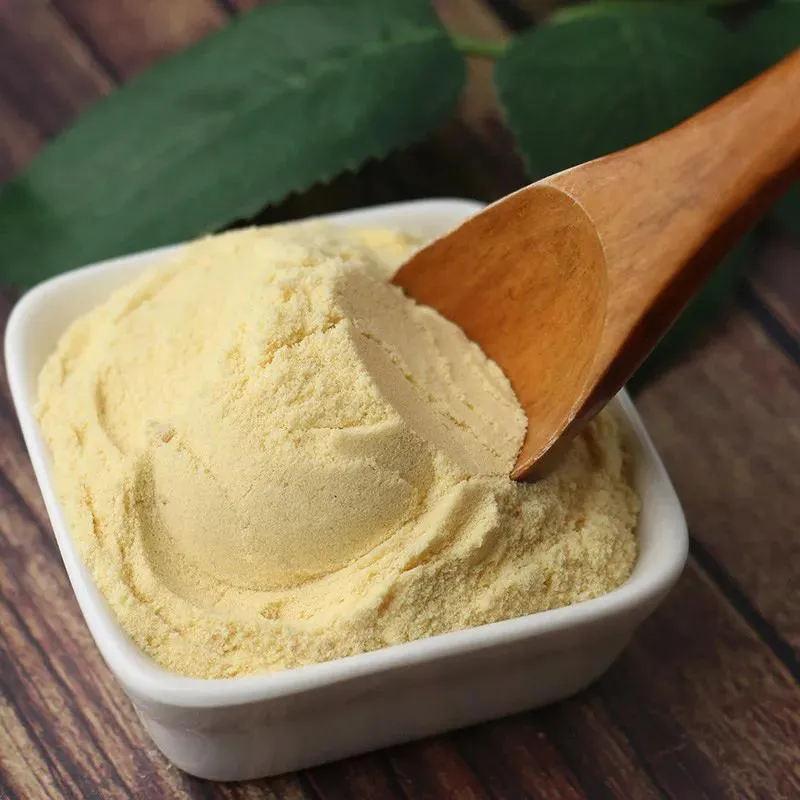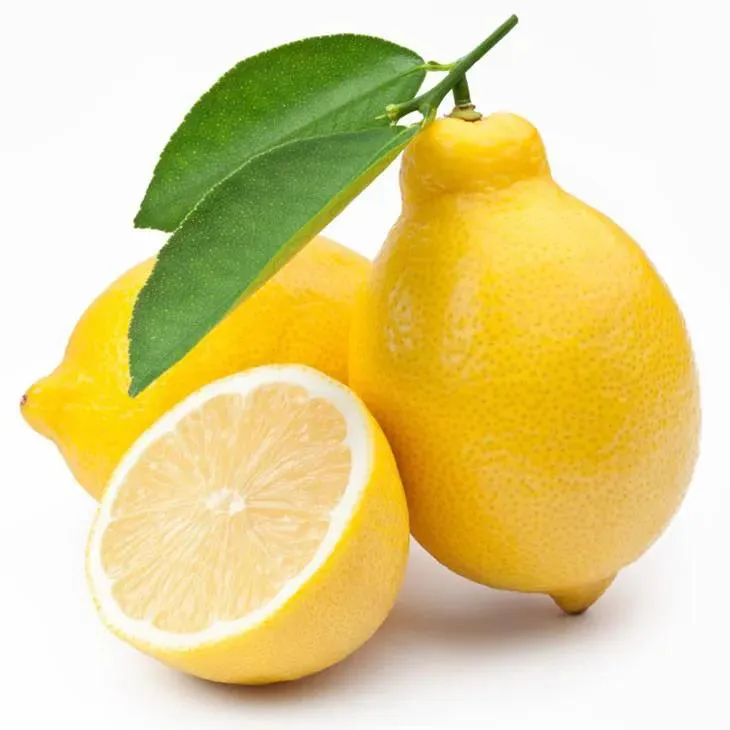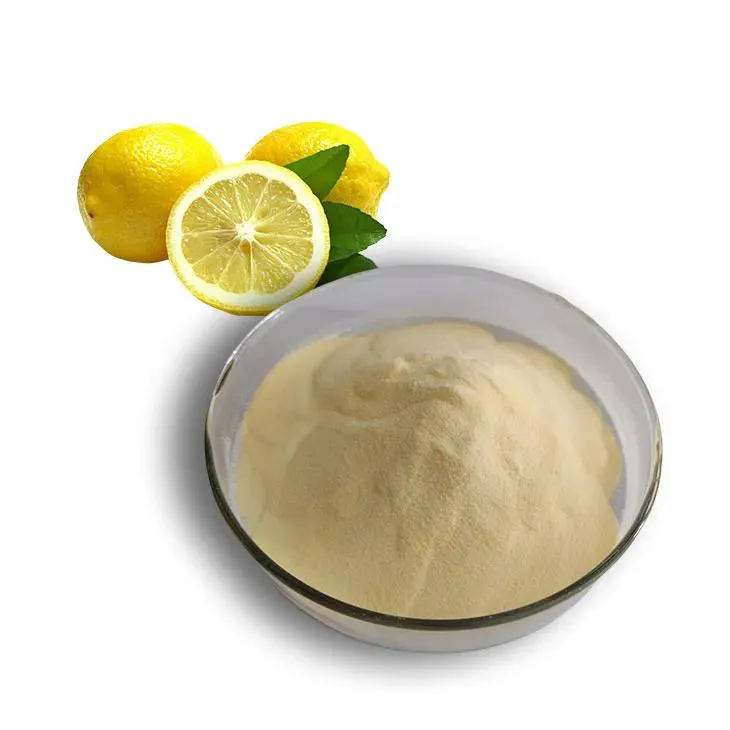- 0086-571-85302990
- sales@greenskybio.com
Optimal Bioavailability of Lemon Juice Powder.
2024-11-28

1. Introduction
Lemon Juice Powder has gained significant popularity in recent years due to its potential health benefits. It is a concentrated form of lemon juice that offers convenience in storage and usage. However, to fully harness its health - promoting properties, understanding and optimizing its bioavailability is essential. Bioavailability refers to the proportion of a substance that enters the circulation and is able to have an active effect. In the case of Lemon Juice Powder, various factors can influence how much of its beneficial components are actually absorbed and utilized by the body.

2. Factors Affecting Bioavailability
2.1 Storage Conditions
Light Exposure: Lemon Juice Powder is sensitive to light. Exposure to sunlight or strong artificial light can cause degradation of its bioactive compounds. For example, vitamin C, which is abundant in lemon juice, is light - sensitive. When stored in a transparent container exposed to light, the vitamin C content can gradually decrease, reducing the overall bioavailability of the powder. It is recommended to store lemon juice powder in an opaque container, preferably in a dark and cool place like a pantry or a cupboard.
Temperature: Temperature also plays a crucial role. High temperatures can accelerate the breakdown of the components in lemon juice powder. If stored in a warm environment, such as near a stove or in a hot attic, the powder may lose its potency more quickly. Ideally, the storage temperature should be maintained at a relatively cool and stable level, around 15 - 20°C (59 - 68°F).
Humidity: Excessive humidity can lead to clumping of the powder and promote the growth of mold or bacteria. Moldy or contaminated lemon juice powder is not only less bioavailable but can also be harmful to health. To prevent this, ensure that the powder is stored in a dry environment. You can use desiccant packs in the storage container to absorb any excess moisture.
2.2 Dosage
Optimal Amount: Determining the correct dosage of lemon juice powder is key to maximizing its bioavailability. A very small dose may not provide enough of the beneficial components to have a significant impact on the body. On the other hand, an excessive dose may not be fully absorbed and could potentially cause adverse effects. Research suggests that for general health benefits, a dosage of about 1 - 3 grams per day of lemon juice powder is a reasonable starting point. This amount can provide a sufficient amount of vitamins, minerals, and antioxidants without overwhelming the body's absorption mechanisms.
Timing of Consumption: The timing of taking lemon juice powder can also affect its bioavailability. Taking it on an empty stomach may result in faster absorption, as there is less food in the digestive tract to interfere. However, for some individuals, taking it with food may be more tolerable and can still provide good bioavailability. For example, consuming lemon juice powder with a meal that contains a small amount of healthy fats can enhance the absorption of fat - soluble vitamins and antioxidants present in the powder.
2.3 Interactions with Medications and Supplements
Medications: Lemon juice powder can interact with certain medications. For instance, it may affect the absorption or metabolism of drugs. If you are taking medications such as antibiotics, blood thinners, or medications for diabetes, it is important to consult your doctor before adding lemon juice powder to your diet. For example, lemon juice can increase the acidity in the stomach, which may affect the absorption of some antibiotics. In some cases, it could potentially reduce the effectiveness of the medication or increase the risk of side effects.
Supplements: Similar to medications, lemon juice powder can interact with other supplements. For example, if you are taking calcium supplements, the citric acid in lemon juice powder may enhance the absorption of calcium. However, if you are taking iron supplements, the high vitamin C content in lemon juice powder can increase the absorption of iron, which may be beneficial in cases of iron deficiency but could also lead to iron overload in some individuals. It is crucial to be aware of these potential interactions and adjust your supplement intake accordingly.

3. Enhancing Bioavailability
3.1 Combining with Other Foods
Fats: Pairing lemon juice powder with healthy fats can improve bioavailability. Fats can help in the absorption of fat - soluble vitamins such as vitamin A, D, E, and K, which are also present in lemon juice in small amounts. For example, you can mix lemon juice powder with a spoonful of olive oil or a small amount of avocado in a smoothie. This combination not only enhances the absorption of these vitamins but also provides a more balanced nutritional profile.
Proteins: Consuming lemon juice powder with proteins can also be beneficial. Proteins can slow down the digestion process, allowing for a more sustained release and absorption of the components in the lemon juice powder. You can add lemon juice powder to a protein - rich meal like a chicken salad or a yogurt parfait. This way, the body has more time to absorb the nutrients from the powder, increasing its bioavailability.
3.2 Preparation Methods
Dissolving in Liquid: The way you dissolve lemon juice powder in liquid can impact its bioavailability. Stirring it thoroughly in a liquid such as water or juice ensures that the powder is evenly distributed. This helps in preventing clumping and allows for better absorption. If not dissolved properly, large particles of the powder may pass through the digestive system without being fully absorbed.
Temperature of the Liquid: The temperature of the liquid used for dissolving the powder also matters. Using warm (but not hot) liquid can enhance the solubility of the powder and potentially improve its bioavailability. Warm water can help break down the powder more effectively, making it easier for the body to absorb the nutrients. However, using very hot water should be avoided as it may damage some of the heat - sensitive components in the lemon juice powder.

4. Bioactive Compounds and Their Bioavailability
4.1 Vitamin C
Vitamin C is one of the most important bioactive compounds in lemon juice powder. It is a water - soluble vitamin that plays a crucial role in immune function, collagen synthesis, and antioxidant protection. However, its bioavailability can be affected by various factors. As mentioned earlier, proper storage is essential to preserve the vitamin C content. In addition, the presence of other substances in the diet can either enhance or inhibit its absorption. For example, consuming vitamin C with foods rich in iron can increase the absorption of iron, while high levels of copper in the diet may reduce the bioavailability of vitamin C.
To optimize the bioavailability of vitamin C in lemon juice powder, it is important to consume it in a balanced diet. Avoiding excessive consumption of substances that can interfere with its absorption, such as large amounts of copper - rich foods, and pairing it with foods that can enhance absorption, like iron - rich foods, can help ensure that the body gets the maximum benefit from the vitamin C in the powder.
4.2 Flavonoids
Flavonoids are a group of plant - based compounds found in lemon juice powder that have antioxidant, anti - inflammatory, and other health - promoting properties. Their bioavailability is relatively complex as they can be affected by factors such as digestion, metabolism, and interaction with other compounds. Some flavonoids are more easily absorbed in their glycosylated forms, while others may require enzymatic breakdown in the gut before being absorbed.
Combining lemon juice powder with certain foods can enhance the bioavailability of flavonoids. For example, consuming it with foods that contain probiotics, such as yogurt, can improve the gut environment and potentially increase the absorption of flavonoids. Probiotics can help in the breakdown of complex flavonoid compounds, making them more accessible for absorption.

5. Conclusion
Optimizing the bioavailability of lemon juice powder is crucial for reaping its full health benefits. By carefully considering storage conditions, dosage, interactions with medications and supplements, and using methods to enhance absorption, such as combining with appropriate foods and using proper preparation techniques, individuals can ensure that they are getting the most out of this versatile and potentially health - enhancing product. It is always important to consult a healthcare professional, especially if you have any underlying health conditions or are taking medications, to ensure that your use of lemon juice powder is safe and effective.
FAQ:
What are the ideal storage conditions for lemon juice powder to maintain optimal bioavailability?
For lemon juice powder to retain its optimal bioavailability, it should be stored in a cool, dry place away from direct sunlight. Exposure to heat, moisture, and light can cause degradation of its components. It is best to keep it in an airtight container to prevent oxidation. Additionally, storing it in a pantry or a cupboard rather than near a heat source like a stove or oven is advisable.
How can one determine the optimal dosage of lemon juice powder for maximum bioavailability?
The optimal dosage of lemon juice powder for maximum bioavailability can vary depending on several factors such as age, overall health, and specific health goals. Generally, starting with a small dose, such as 1 - 2 grams per day, and gradually increasing while observing any potential effects on the body is a good approach. However, it is also important to follow the recommended dosages provided on the product packaging or consult a healthcare professional, especially if there are underlying health conditions or if taking other medications.
Are there any foods or substances that can enhance the bioavailability of lemon juice powder?
Some foods rich in vitamin C, like strawberries or oranges, may potentially enhance the overall antioxidant effect when consumed with lemon juice powder, but there is no conclusive evidence on direct enhancement of its bioavailability. On the other hand, consuming it with a small amount of healthy fat, such as a teaspoon of olive oil, may help in the absorption of certain fat - soluble components in the lemon juice powder, but more research is needed in this area.
What are the potential interactions between lemon juice powder and medications or supplements?
Lemon juice powder, like fresh lemon juice, contains citric acid. It can potentially interact with medications such as alkaline - based drugs. For example, it may affect the absorption or effectiveness of some antibiotics. When it comes to supplements, if taking calcium supplements, the citric acid in lemon juice powder may enhance the absorption of calcium to some extent. However, it is crucial to consult a doctor or pharmacist before combining lemon juice powder with any medications or supplements to avoid any adverse effects.
Can the processing method of lemon juice powder affect its bioavailability?
Yes, the processing method can have an impact on the bioavailability of lemon juice powder. High - heat processing during manufacturing may lead to the destruction of some heat - sensitive nutrients and bioactive compounds, reducing its bioavailability. Gentle drying methods that preserve the integrity of the components are more likely to result in a product with better bioavailability. Additionally, the quality of the raw lemons used in the production also plays a role. Lemons that are fresh and of high quality are more likely to yield a powder with better bioavailability.
Related literature
- Bioavailability of Nutrients in Fruit Powders: A Review"
- "The Role of Citrus Bioactive Compounds in Health: A Review of Their Bioavailability"
- "Optimizing the Nutritional Value of Powdered Fruit Products"
- ▶ Hesperidin
- ▶ Citrus Bioflavonoids
- ▶ Plant Extract
- ▶ lycopene
- ▶ Diosmin
- ▶ Grape seed extract
- ▶ Sea buckthorn Juice Powder
- ▶ Fruit Juice Powder
- ▶ Hops Extract
- ▶ Artichoke Extract
- ▶ Mushroom extract
- ▶ Astaxanthin
- ▶ Green Tea Extract
- ▶ Curcumin
- ▶ Horse Chestnut Extract
- ▶ Other Product
- ▶ Boswellia Serrata Extract
- ▶ Resveratrol
- ▶ Marigold Extract
- ▶ Grape Leaf Extract
- ▶ New Product
- ▶ Aminolevulinic acid
- ▶ Cranberry Extract
- ▶ Red Yeast Rice
- ▶ Red Wine Extract
-
Coix Seed Extract
2024-11-28
-
Aminolevulinic acid
2024-11-28
-
Maitake Mushroom Extract
2024-11-28
-
Thunder God Vine Extract
2024-11-28
-
Artichoke Extract
2024-11-28
-
Grape Leaf Extract
2024-11-28
-
Withania Somnifera Extract
2024-11-28
-
White mustard seed extract
2024-11-28
-
Ginseng Root Extract
2024-11-28
-
Nettle leaf extract
2024-11-28





















